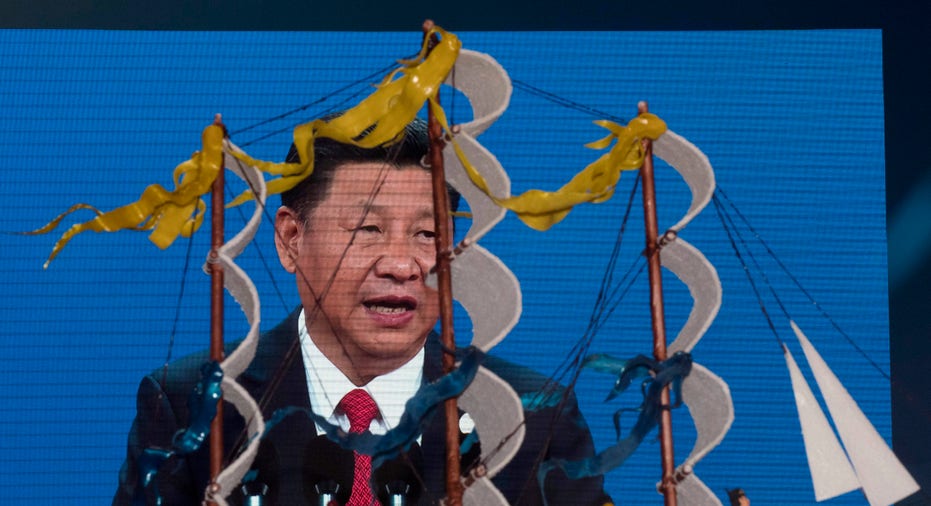China's leader offers billions for new Silk Road initiative

BEIJING – Chinese President Xi Jinping on Sunday offered tens of billions of dollars for projects that are part of his signature foreign policy initiative linking China to much of Asia, Europe and Africa.
Xi made the announcement in his opening address to a two-day "Belt and Road" conference in Beijing that brought together leaders from 29 countries. It was Xi's latest high-profile appearance that seeks to cast him as a global leader and chief advocate for free trade.
"We should build an open platform of cooperation and uphold and grow an open world economy," Xi said. Despite China's public defense of free trade, Beijing faces mounting complaints that the government is hampering or reducing market access to foreign companies.
Xi said China would contribute 100 billion yuan ($14.5 billion) to the Silk Road Fund, which was set up in 2014 to finance infrastructure projects and provide aid worth 60 billion yuan ($8.7 billion) to developing countries and international organizations taking part in the initiative to revive the ancient trade route.
Two Chinese banks will also set up lending schemes valued at 380 billion yuan ($55 billion) to support the initiative, Xi said.
Presidents Vladimir Putin of Russia and Recep Tayyip Erdogan of Turkey also spoke at the opening ceremony.
Washington is being represented by a junior delegation led by Matt Pottinger, special assistant to the president and senior director for East Asia at the National Security Council.
Governments from Washington to New Delhi worry that Beijing is using the initiative to build its own political influence and erode theirs, or that China might undermine environmental standards or leave poor countries burdened with debt.
India delivered an implicit criticism of China's plan Saturday in a statement from its foreign ministry that said such an initiative should meet international norms and not create unsustainable debt.
India also has objected to Chinese state-owned companies working in the Pakistani-held part of Kashmir, the Himalayan region claimed by both sides, seeing that as an endorsement of Pakistan's control.
"No country can accept a project that ignores its core concerns on sovereignty and territorial integrity," the statement said.
Some diplomats and political analysts say Beijing is trying to create a political and economic network centered on China, push the United States out of the region and rewrite rules on trade and security.
Seeking to portray the initiative as welcoming and inclusive, Xi promised to avoid forming a "small group" of allies, which he said might harm regional stability. Instead, he said, Beijing wants "partnerships of friendship" and a "big family of harmonious coexistence."
___
Associated Press writers Matthew Brown and Gillian Wong in Beijing and Muneeza Naqvi in New Delhi contributed to this report.



















